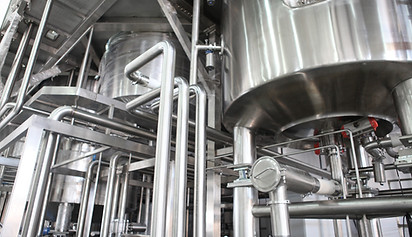Call 0121 559 6431 or email Enquiries@dakro.co.uk
Water Treatment Services




Effective Water Treatment

Where are water treatments used?
Water treatments are used to clean and control the water within a variety of water systems, including cold water distribution; low, medium and high pressure hot water systems; and open and closed circuit cooling. Water treatments are commonly used in cooling towers and industrial boilers, and in sectors ranging from commercial to industrial.
Water treatments for industrial boilers
Industrial boilers need regular maintenance to prevent scale and corrosion, and to ensure they remain efficient. Without frequent checks, you run the risk of tubes splitting and the boiler itself blowing up. For the safety of your team, it is essential that you comply with regular industrial boiler inspections.
How regularly do industrial boilers need water treatments?
Alongside the usual daily and weekly checks of industrial boilers that are carried out by someone within your organisation, your industrial boiler should be checked once a month, depending on your type of system, by an expert. Our chemical experts will examine the chemical analysis of the water in your system, and act upon any issues by conditioning the water as required.
What does the water treatment of an industrial boiler involve?
Our experts will visit your site to condition the water of your boiler in order to minimise scale and corrosion. We offer scale and commission inhibitors for low, medium and high pressure boilers, as well as pre-commission alkaline boil outs and chemical descaling. We are compliant with BS2486. If you’re unsure of your exact needs, we also provide bespoke chemical treatment packages.
Generally, we carry out regular once a month visits to check the quality of water in your industrial boiler, but we can also arrange one-off visits if requested.
Water treatments for water tanks
Water tanks serve sites with domestic water. Often, this water is used in welfare facilities such as for cleaning, washing and in certain cases drinking, or as part of an industrial process. HSE recommends regular checks of your water tank to prevent any build-up of silt, and ensure the water is clean. Occasionally, vermin or birds can fall into water tanks, so regular maintenance is essential.
We can provide a complete cleaning and disinfection service to both existing and new water tanks and systems. If you need new static or temporary water tanks installed, any testing will be carried out prior to installation. At Dakro, we supply and fit all types of water tanks, and have all of the accessories, booster pump sets and fittings you may need.
Types of water treatments
There are several ways to deliver water treatments, but the most common are through the use of chemicals, UV light and reverse osmosis.
What do chemical water treatments involve?
Chemical water treatments involve adding chemicals to water systems. Regular testing of chemical levels in water systems should always be carried out alongside any chemical treatments.
An example of a chemical used in water treatments is the disinfectant chlorine dioxide. Chlorine dioxide is a potent oxidizing agent. It’s incredibly effective in water treatment, bleaching, and is also used to sterilise medical and laboratory equipment. Chlorine dioxide is commonly added to domestic drinking water, as well as the water in pubs and hotels, to reduce parasites and bacteria.
How do UV light water treatments work?
Often seen as a cost effective alternative or additional extra measure for chemical treatments, UV light treatments are used in domestic water systems to kill harmful bacteria. A UV light bulb kept underwater will work in the same way as a UV light bulb in air. UV light waves will penetrate the bacteria’s cell, and kill it almost immediately.
By calculating the volume and density of a body of water, our expert teams can work out exactly how to ensure all of the water passes in front of a UV light bulb for the correct amount of time at the correct flow and density.
In some instances, such as within the food industry and hospitals, both UV light and chemical water treatments are used to ensure water is as clean and pure as possible.
The UV light systems we use are WRAS and Regulation 31 compliant. We can arrange the installation and regular monitoring of your UV equipment.
What is reverse osmosis?
Reserve osmosis (RO) is an effective, non-chemical process to condition water. By using high water pressure across a semipermeable membrane, reverse osmosis technology can separate out harmful particulate, ions and bacteria. We can provide and install a range of membrane scale inhibitors and reverse osmosis equipment.
Do you provide water testing kits for use at home?
We can provide basic water testing kits for at-home treatments on request.

